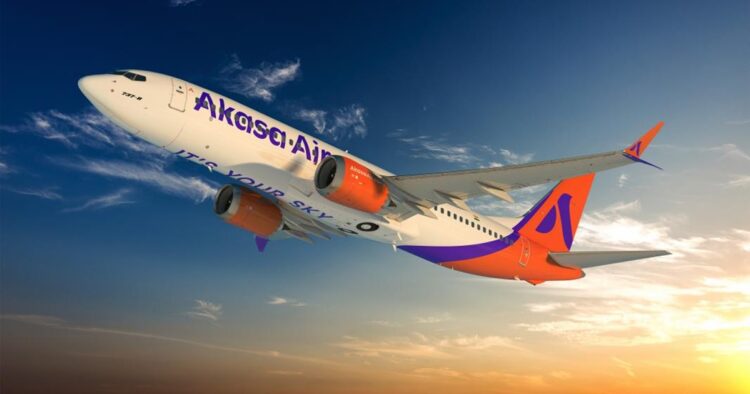In an exciting development during the state visit of French President Emmanuel Macron to Bharat, Akasa Air, the country’s newest airline, and CFM International have solidified a groundbreaking agreement. The deal involves the purchase of over 300 CFM LEAP-1B engines to power a fleet of 150 Boeing 737 MAX airplanes. This move comes as part of Akasa Air’s expansion plans, building on the announcement of the sale of the aircraft just last week.
The comprehensive agreement includes not only the acquisition of the engines but also covers spare engines and a service contract. Akasa Air, based in Mumbai, commenced its operations in August 2022 and has been at the forefront of meeting the increasing demand for civil aviation across India. The airline had previously ordered 76 LEAP-1B-powered 737-8 aircraft, with 22 already in active service.
Vinay Dube, the founder and CEO of Akasa Air, expressed confidence in the long-term partnership with CFM International, emphasizing the commitment to operational reliability and safety. Dube highlighted the significance of the agreement in supporting Akasa Air’s vision to become one of the top 30 global airlines by the end of the decade.
This substantial order marks an expansion of CFM International’s presence in India, with over 400 CFM-powered aircraft currently in service and a backlog of 2,500 LEAP engines. The collaboration aligns with the “Make in India” policy, as both parent companies of CFM International, GE Aerospace and Safran Aircraft Engines, have invested significantly in state-of-the-art facilities dedicated to LEAP production and maintenance in India.
Gael Meheust, President and CEO of CFM International, emphasized the impressive performance of LEAP-powered fleets, boasting 15 to 20 percent better fuel efficiency and the highest reliability and daily utilization rates in its thrust class. This order is expected to contribute to Akasa Air’s growth and play a vital role in India’s economic development.
The LEAP engine family, introduced in 2016, has achieved a remarkable milestone by accumulating over 45 million engine flight hours and 18.7 million flight cycles. Notably, the LEAP engine has been instrumental in helping operators save more than 30 million tons of CO2 compared to previous-generation engines since entering service.
In summary, the collaboration between Akasa Air and CFM International signifies a major stride in the aviation industry, aligning with India’s economic ambitions and emphasizing the superior performance of LEAP engines in terms of efficiency and sustainability.

















Comments